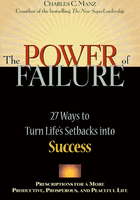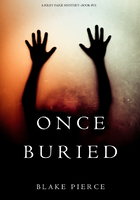Mrs. Gibson came back full of rose-coloured accounts of London. Lady Cumnor had been gracious and affectionate, 'so touched by my going up to see her, so soon after her return to England;' Lady Harriet charming and devoted to her old governess; Lord Cumnor 'just like his dear usual hearty self;' and as for the Kirkpatricks, no Lord Chancellor's house was ever grander than theirs, and the silk gown of the Q.C. had floated over housemaids and footmen. Cynthia, too, was so much admired; and as for her dress, Mrs. Kirkpatrick had showered down ball-dresses and wreaths, and pretty bonnets and mantles, like a fairy godmother. Mr. Gibson's poor present of ten pounds shrank into very small dimensions compared with all this munificence.
'And they're so fond of her, I don't know when we shall have her back,' was Mrs. Gibson's winding-up sentence. 'And now, Molly, what have you and papa been doing? Very gay, you sounded in your letter. I had not time to read it in London; so I put it in my pocket, and read it in the coach coming home. But, my dear child, you do look so old-fashioned with your gown made all tight, and your hair all tumbling about in curls. Curls are quite gone out.' We must do your hair differently,' she continued, trying to smooth Molly's black waves into straightness.
'I sent Cynthia an African letter,' said Molly, timidly. 'Did you hear anything of what was in it?'
'Oh, yes, poor child! It made her very uneasy, I think; she said she did not feel inclined to go to Mr. Rawson's ball, which was on that night, and for which Mrs. Kirkpatrick had given her the ball-dress. But there really was nothing for her to fidget herself about. Roger only said he had had another touch of fever, but was better when he wrote. He says every European has to be acclimatized by fever in that part of Abyssinia where he is.'
'And did she go?' asked Molly.
'Yes, to be sure. It is not an engagement; and if it were, it is not acknowledged. Fancy her going and saying, "A young man that I know has been ill for a few days in Africa, two months ago, therefore I don't want to go to the ball to-night." It would have seemed like affectation of sentiment; and if there's one thing I hate it is that.'
'She would hardly enjoy herself,' said Molly.
'Oh, yes, but she did. Her dress was white gauze, trimmed with lilacs, and she really did look—a mother may be allowed a little natural partiality—most lovely. And she danced every dance, although she was quite a stranger. I am sure she enjoyed herself, from her manner of talking about it next morning.'
'I wonder if the squire knows.'
'Knows what? Oh, yes, to be sure! You mean about Roger. I dare say he doesn't, and there's no need to tell him, for I've no doubt it is all right now.' And she went out of the room to Finish her unpacking.
Molly let her work fall, and sighed. 'It will be a year the day after to-morrow since he came here to propose our going to Hurst Wood, and mamma was so vexed at his calling before lunch. I wonder if Cynthia remembers it as well as I do. And now, perhaps—Oh! Roger, Roger! I wish—I pray that you were safe home again! How could we all bear it, if—'
She covered her face with her hands, and tried to stop thinking. Suddenly she got up, as if stung by a venomous fancy,
'I don't believe she loves him as she ought, or she could not—could not have gone and danced. What shall I do if she does not? What shall I do? I can bear anything but that.'
But she found the long suspense as to his health hard enough to endure. They were not likely to hear from him for a month at least, and before that time had elapsed Cynthia would be at home again. Molly learnt to long for her return before a fortnight of her absence was over. She had had no idea that perpetual tete-a-tetes with Mrs. Gibson could, by any possibility, be so tiresome as she found them. Perhaps Molly's state of delicate health, consequent upon her rapid growth during the last few months, made her irritable; but really often she had to get up and leave the room to calm herself down after listening to a long series of words, more frequently plaintive or discontented in tone than cheerful, and which at the end conveyed no distinct impression of either the speaker's thought or feeling. Whenever anything had gone wrong, whenever Mr. Gibson had coolly persevered in anything to which she had objected; whenever the cook had made a mistake about the dinner, or the housemaid broken any little frangible article; whenever Molly's hair was not done to her liking, or her dress did not become her, or the smell of dinner pervaded the house, or the wrong callers came, or the right callers did not come—in fact, whenever anything went wrong, poor Mr. Kirkpatrick was regretted and mourned over, nay, almost blamed, as if, had he only given himself the trouble of living, he could have helped it.
'When I look back to those happy days, it seems to me as if I had never valued them as I ought. To be sure—youth, love,—what did we care for poverty! I remember dear Mr. Kirkpatrick walking five miles into Stratford to buy me a muffin because I had such a fancy for one after Cynthia was born. I don't mean to complain of dear papa—but I don't think—but, perhaps I ought not to say it to you. If Mr Kirkpatrick had but taken care of that cough of his; but he was so obstinate! Men always are, I think. And it really was selfish of him. Only I dare say he did not consider the forlorn state in which I should be left. It came harder upon me than upon most people, because I always was of such an affectionate sensitive nature. I remember a little poem of Mr. Kirkpatrick's in which he compared my heart to a harp-string, vibrating to the slightest breeze.'
'I thought harp-strings required a pretty strong finger to make them sound,' said Molly.
'My dear child, you've no more poetry in you than your father. And as for your hair! it's worse than ever. Can't you drench it in water to take those untidy twists and twirls out of it?'
'It only makes it curl more and more when it gets dry,' said Molly, sudden tears coming into her eyes as a recollection came before her like a picture seen long ago and forgotten for years—a young mother washing and dressing her little girl; placing the half-naked darling on her knee, and twining the wet rings of dark hair fondly round her fingers, and then, in an ecstasy of fondness, kissing the little curly head.
The receipt of Cynthia's letters made very agreeable events. She did not write often, but her letters were tolerably long when they did come, and very sprightly in tone. There was constant mention made of many new names, which conveyed no idea to Molly, though Mrs. Gibson would try and enlighten her by running commentaries like the following,—
'Mrs. Green! ah, that's Mr. Jones's pretty cousin, who lives in Russell Square with the fat husband. They keep their carriage; but I'm not sure if it is not Mr. Green who is Mrs. Jones's cousin. We can ask Cynthia when she comes home. Mr. Henderson! to be sure—a young man with black whiskers, a pupil of Mr. Kirkpatrick's formerly,—or was he a pupil of Mr. Murray's? I know they said he had read law with somebody. Ah, yes! they are the people who called the day after Mr Rawson's ball, and who admired Cynthia so much, without knowing I was her mother. She was very handsomely dressed indeed, in black satin; and the son had a glass eye, but he was a young man of good property. Coleman! yes, that was the name.'
No more news of Roger until some time after Cynthia had returned from her London visit. She came back looking fresher and prettier than ever, beautifully dressed, thanks to her own good taste, and her cousins' generosity, full of amusing details of the gay life she had been enjoying, yet not at all out of spirits at having left it behind her. She brought home all sorts of pretty and dainty devices for Molly; a neck ribbon made up in the newest fashion, a pattern for a tippet, a delicate pair of light gloves embroidered as Molly had never seen gloves embroidered before, and many another little sign of remembrance during her absence. Yet somehow or other, Molly felt that Cynthia was changed in her relation to her. Molly was aware that she had never had Cynthia's full confidence, for with all her apparent frankness and naivete of manner, Cynthia was extremely reserved and reticent. She knew this much of herself, and had often laughed about it to Molly, and the latter had found out the truth of her friend's assertion for herself. But Molly did not trouble herself much about this, She too knew that there were many thoughts and feelings that flitted through her mind that she should never think of telling to any one, except perhaps—if they were ever very much thrown together—to her father. She knew that Cynthia withheld from her more than thoughts and feelings—that she withheld facts. But then, as Molly reflected, these facts might involve details of struggle and suffering, might relate to her mother's neglect, and altogether be of so painful a character, that it would be well if Cynthia could forget her childhood altogether, instead of fixing it in her mind by the relation of her grievances and troubles. So it was not now by any want of confidence that Molly felt distanced as it were. It was because Cynthia rather avoided than sought her companionship; because her eyes shunned the straight, serious, loving look of Molly's; because there were certain subjects on which she evidently disliked speaking, not particularly interesting things as far as Molly could perceive, but it almost seemed as if they lay on the road to points to be avoided. Molly felt a sort of sighing pleasure in noticing Cynthia's changed manner of talking about Roger. She spoke of him tenderly now; 'poor Roger,' as she called him; and Molly thought that she must be referring to the illness which he had mentioned in his last letter. One morning in the first week after Cynthia's return home, just as he was going out, Mr. Gibson ran up into the drawing-room, hat on, booted and spurred, and hastily laid an open pamphlet down before her; pointing out a particular passage with his finger, but not speaking a word before he rapidly quitted the room. His eyes were sparkling, and had an amused as well as pleased expression. All this Molly noticed, as well as Cynthia's flush of colour as she read what was thus pointed out to her. Then she pushed it a little on one side, not closing the book however, and went on with her work.
'What is it? may I see it?' asked Molly, stretching out her hand for the pamphlet, which lay within her reach. But she did not take it until Cynthia had said,—
'Certainly, I don't suppose there are any great secrets in a scientific journal, full of reports of meetings.' And she gave the book a little push towards Molly. .
'Oh, Cynthia!' said Molly, catching her breath as she read, 'Are you not proud?' For it was an account of an annual gathering of the Geographical Society, and Lord Hollingford had read a letter he had received from Roger Hamley, dated from Arracuoba, a district in Africa, hitherto unvisited by any intelligent European traveller; and about which, Mr. Hamley sent many curious particulars. The reading of this letter had been received with the greatest interest, and several subsequent speakers had paid the writer very high compliments.
But Molly might have known Cynthia better than to expect an answer responsive to the feelings that prompted her question. Let Cynthia be ever so proud, ever so glad, or so grateful, or even indignant, remorseful, grieved or sorry, the very fact that she was expected by another to entertain any of these emotions, would have been enough to prevent her expressing them.
'I'm afraid I'm not as much struck by the wonder of the thing as you are, Molly. Besides, it is not news to me; at least, not entirely. I heard about the meeting before I left London; it was a good deal talked about in my uncle's set; to be sure I did not hear all the fine things they say of him there—but then, you know, that's a mere fashion of speaking, which means nothing; somebody is bound to pay compliments when a lord takes the trouble to read one of his letters aloud.'
'Nonsense,' said Molly. 'You know you don't believe what you are saying, Cynthia.'
Cynthia gave that pretty little jerk of her shoulders, which was her equivalent for a French shrug, but did not lift up her head from her sewing. Molly began to read the report over again.
'Why, Cynthia!' she said, 'you might have been there; ladies were there. It says "many ladies were present." Oh, could not you have managed to go? If your uncle's set cared about these things, would not some of them have taken you?'
'Perhaps, if I had asked them. But I think they would have been rather astonished at my sudden turn for science.'
'You might have told your uncle how matters really stood; he would not have talked about it if you had wished him not, I am sure, and he could have helped you.'
'Once for all, Molly,' said Cynthia, now laying down her work, and speaking with quick authority, 'do learn to understand that it is, and always has been my wish, not to have the relation which Roger and I bear to each other, mentioned or talked about. When the right time comes, I will make it known to my uncle, and to everybody whom it may concern; but I am not going to make mischief, and get myself into trouble—even for the sake of hearing compliments paid to him—by letting it out before the time. If I'm pushed to it, I'd sooner break it off altogether at once, and have done with it. I can't be worse off than I am now.' Her angry tone had changed into a kind of desponding complaint before she had ended her sentence. Molly looked at her with dismay.
'I can't understand you, Cynthia,' she said at length.
'No; I dare say you can't,' said Cynthia, looking at her with tears in her eyes, and very tenderly, as if in atonement for her late vehemence. 'I am afraid—I hope you never will.'
In a moment, Molly's arms were round her. 'Oh, Cynthia,' she murmured, 'have I been plaguing you? Have I vexed you? Don't say you're afraid of my knowing you. Of course you've your faults, everybody has, but I think I love you the better for them.'
'I don't know that I'm so very bad,' said Cynthia, smiling a little through the tears that Molly's words and caresses had forced to overflow from her eyes. 'But I have got into scrapes. I am in a scrape now, I do sometimes believe I shall always be in scrapes, and if they ever come to light, I shall seem to be worse than I really am; and I know your father will throw me off, and I—no, I won't be afraid that you will, Molly.'
'I'm sure I won't. Are they—do you think—how would Roger take it?' asked Molly, very timidly.
'I don't know. I hope he will never hear of it. I don't see why he should, for in a little while I shall be quite clear again. It all came about without my ever thinking I was doing wrong. I've a great mind to tell you all about it, Molly.'
Molly did not like to urge it, though she longed to know, and to see if she could not offer help; but while Cynthia was hesitating, and perhaps, to say the truth, rather regretting that she had even made this slight advance towards bestowing her confidence, Mrs. Gibson came in, full of some manner of altering a gown of hers, so as to make it into the fashion of the day, as she had seen it during her visit to London. Cynthia seemed to forget her tears and her troubles, and to throw her whole soul into millinery.
Cynthia's correspondence went on pretty briskly with her London cousins, according to the usual rate of correspondence in those days. Indeed Mrs. Gibson was occasionally inclined to complain of the frequency of Helen Kirkpatrick's letters; for before the penny post came in, the recipient had to pay the postage of letters; and elevenpence-halfpenny three times a week came, according to Mrs Gibson's mode of reckoning when annoyed, to a sum 'between three and four shillings.' But these complaints were only for the family; they saw the wrong side of the tapestry. Hollingford in general, the Miss Brownings in particular, heard of 'dear Helen's enthusiastic friendship for Cynthia' and of 'the real pleasure it was to receive such constant news—relays of news indeed—from London. It was almost as good as living there!'
'A great deal better I should think,' said Miss Browning with some severity. For she had got many of her notions of the metropolis from the British Essayists, where town is so often represented as the centre of dissipation, corrupting country wives and squires' daughters, and unfitting them for all their duties by the constant whirl of its not always innocent pleasures. London was a sort of moral pitch, which few could touch and not be defiled. Miss Browning had been on the watch for the signs of deterioration in Cynthia's character ever since her return home. But, excepting in a greater number of pretty and becoming articles of dress, there was no great change for the worse to be perceived. Cynthia had been 'in the world,' had 'beheld the glare and glitter and dazzling display of London,' yet had come back to Hollingford as ready as ever to place a chair for Miss Browning, or to gather flowers for a nosegay for Miss Phoebe, or to mend her own clothes. But all this was set down to the merits of Cynthia, not to the credit of London-town.
'As far as I can judge of London,' said Miss Browning, sententiously continuing her tirade against the place, 'it's no better than a pickpocket and a robber dressed up in the spoils of honest folk. I should like to know where my Lord Hollingford was bred, and Mr. Roger Hamley. Your good husband lent me that report of the meeting, Mrs Gibson, where so much was said about them both, and he was as proud of their praises as if he had been akin to them, and Phoebe read it aloud to me, for the print was too small for my eyes; she was a good deal perplexed with all the new names of places, but I said she had better skip them all, for we had never heard of them before and probably should never hear of them again, but she read out the fine things they said of my lord, and Mr. Roger, and I put it to you, where were they born and bred? Why, within eight miles of Hollingford; it might have been Molly there or me; it's all a chance; and then they go and talk about the pleasures of intellectual society in London, and the distinguished people up there that it is such an advantage to know, and all the time I know it's only shops and the play that's the real attraction. But that's neither here nor there. We all put our best foot foremost, and if we have a reason to give that looks sensible we speak it out like men, and never say anything about the silliness we are hugging to our hearts. But I ask you again, where does this fine society come from, and these wise men, and these distinguished travellers? Why, out of country parishes like this! London picks 'em all up, and decks herself with them, and then calls out loud to the folks she's robbed, and says, "Come and see how fine I am." Fine, indeed! I've no patience with London: Cynthia is much better out of it; and I'm not sure, if I were you, Mrs. Gibson, if I would not stop up those London letters: they'll only be unsettling her.'
'But perhaps she may live in London some of these days, Miss Browning,' simpered Mrs. Gibson.
'Time enough then to be thinking of London. I wish her an honest country husband with enough to live upon, and a little to lay by, and a good character to boot. Mind that, Molly,' said she, firing round upon the startled Molly, 'I wish Cynthia a husband with a good character; but she's got a mother to look after her; you've none and when your mother was alive she was a dear friend of mine: so I'm not going to let you throw yourself away upon any one whose life is not clear and above- board, you may depend upon it.'
This last speech fell like a bomb into the quiet little drawing-room, it was delivered with such vehemence. Miss Browning, in her secret heart, meant it as a warning against the intimacy she believed that Molly had formed with Mr. Preston; but as it happened that Molly had never dreamed of any such intimacy, the girl could not imagine why such severity of speech should be addressed to her. Mrs. Gibson, who always took up the points of every word or action where they touched her own self (and called it sensitiveness), broke the silence that followed Miss Browning's speech by saying, plaintively,—
'I'm sure, Miss Browning, you are very much mistaken if you think that any mother could take more care of Molly than I do. I don't—I can't think there is any need for any one to interfere to protect her, and I have not an idea why you have been talking in this way, just as if we were all wrong, and you were all right. It hurts my feelings, indeed it does; for Molly can tell you there is not a thing or a favour that Cynthia has, that she has not. And as for not taking care of her, why, if she were to go up to London to-morrow, I should make a point of going with her to see after her; and I never did it for Cynthia when she was at school in France; and her bedroom is furnished just like Cynthia's; and I let her wear my red shawl whenever she likes, she might have it oftener if she would. I can't think what you mean, Miss Browning.'
'I did not mean to offend you, but I meant just to give Molly a hint. She understands what I mean.'
'I'm sure I do not,' said Molly, boldly. 'I have not a notion what you meant, if you were alluding to anything more than you said straight out; that you do not wish me to marry any one who has not a good character, and that, as you were a friend of mamma's, you would prevent my marrying a man with a bad character, by every means in your power. I'm not thinking of marrying; I don't want to marry anybody at all; but if I did, and he were not a good man, I should thank you for coming and warning me of it.'
'I shall not stand on warning you, Molly. I shall forbid the banns in church, if need be,' said Miss Browning, half convinced of the clear transparent truth of what Molly had said; blushing all over, it is true, but with her steady eyes fixed on Miss Browning's face while she spoke.
'Do!' said Molly.
'Well, well, I won't say any more. Perhaps I was mistaken, We won't say any more about it. But remember what I have said, Molly, there's no harm in that, at any rate. I'm sorry I hurt your feelings, Mrs Gibson. As stepmothers go, I think you try and do your duty. Good morning. Good-by to you both, and God bless you.'
If Miss Browning thought that her final blessing would secure peace in the room she was leaving, she was very much mistaken; Mrs. Gibson burst out with,—
'Try and do my duty, indeed! I should be much obliged to you, Molly, if you would take care not to behave in such a manner as to bring down upon me such impertinence as I have just been receiving from Miss Browning.'
'But I don't know what made her talk as she did, mamma,' said Molly.
'I'm sure I don't know, and I don't care either. But I know that I never was spoken to as if I was trying to do my duty before,—"trying" indeed! everybody always knew that I did it, without talking about it before my face in that rude manner. I've that deep feeling about duty that I think it ought only to be talked about in church, and in such sacred places as that; not to have a common caller startling one with it, even though she was an early friend of your mother's. And as if I did not look after you quite as much as I look after Cynthia! Why, it was only yesterday I went up into Cynthia's room and found her reading a letter that she put away in a hurry as soon as I came in, and I did not even ask her who it was from, and I am sure I should have made you tell me.'
Very likely. Mrs. Gibson shrank from any conflicts with Cynthia, pretty sure that she would be worsted in the end; while Molly generally submitted, sooner than have any struggle for her own will.
Just then Cynthia came in.
'What's the matter?' said she quickly, seeing that something was wrong.
'Why, Molly has been doing something which has set that impertinent Miss Browning off into lecturing me on trying to do my duty! If your poor father had but lived, Cynthia, I should never have been spoken to as I have been. "A stepmother trying to do her duty", indeed. That was Miss Browning's expression.'
Any allusion to her father took from Cynthia all desire of irony. She came forwards, and again asked Molly what was the matter.
Molly, herself ruffled, made answer,—
'Miss Browning seemed to think I was likely to marry some one whose character was objectionable—'
'You, Molly?' said Cynthia.
'Yes—she once before spoke to me,—I suspect she has got some notion about Mr. Preston in her head—'
Cynthia sate down quite suddenly. Molly went on,—'and she spoke as if mamma did not look enough after me,—I think she was rather provoking—'
'Not rather, but very—very impertinent,' said Mrs. Gibson, a little soothed by Molly's recognition of her grievance.
'What could have put it into her head?' said Cynthia, very quietly, taking up her sewing as she spoke.
'I don't know,' said her mother, replying to the question after her own fashion. 'I'm sure I don't always approve of Mr. Preston; but even if it was him she was thinking about, he's far more agreeable than she is; and I had much rather have him coming to call than an old maid like her any day.'
'I don't know that it was Mr. Preston she was thinking about,' said Molly. 'It was only a guess. When you were both in London she spoke about him,—I thought she had heard something about you and him, Cynthia.' Unseen by her mother Cynthia looked up at Molly, her eyes full of prohibition, her cheeks full of angry colour. Molly stopped short suddenly. After that look she was surprised at the quietness with which Cynthia said, almost immediately,—
'Well, after all it is only your fancy that she was alluding to Mr Preston, so perhaps we had better not say any more about him; and as for her advice to mamma to look after you better, Miss Molly, I'll stand bail for your good behaviour; for both mamma and I know you're the last person to do any foolish things in that way. And now don't let us talk any more about it. I was coming to tell you that Hannah Brand's little boy has been badly burnt, and his sister is downstairs asking for old linen.'
Mrs. Gibson was always kind to poor people, and she immediately got up and went to her stores to search for the article wanted.
Cynthia turned quietly round to Molly.
'Molly, pray don't ever allude to anything between me and Mr Preston,— not to mamma, nor to any one. Never do! I've a reason for it,—don't say anything more about it, ever.'
Mrs. Gibson came back at this moment, and Molly had to stop short again on the brink of Cynthia's confidence; uncertain indeed this time, if she would have been told anything more, and only sure that she had annoyed Cynthia a good deal.
But the time was approaching when she would know all.















